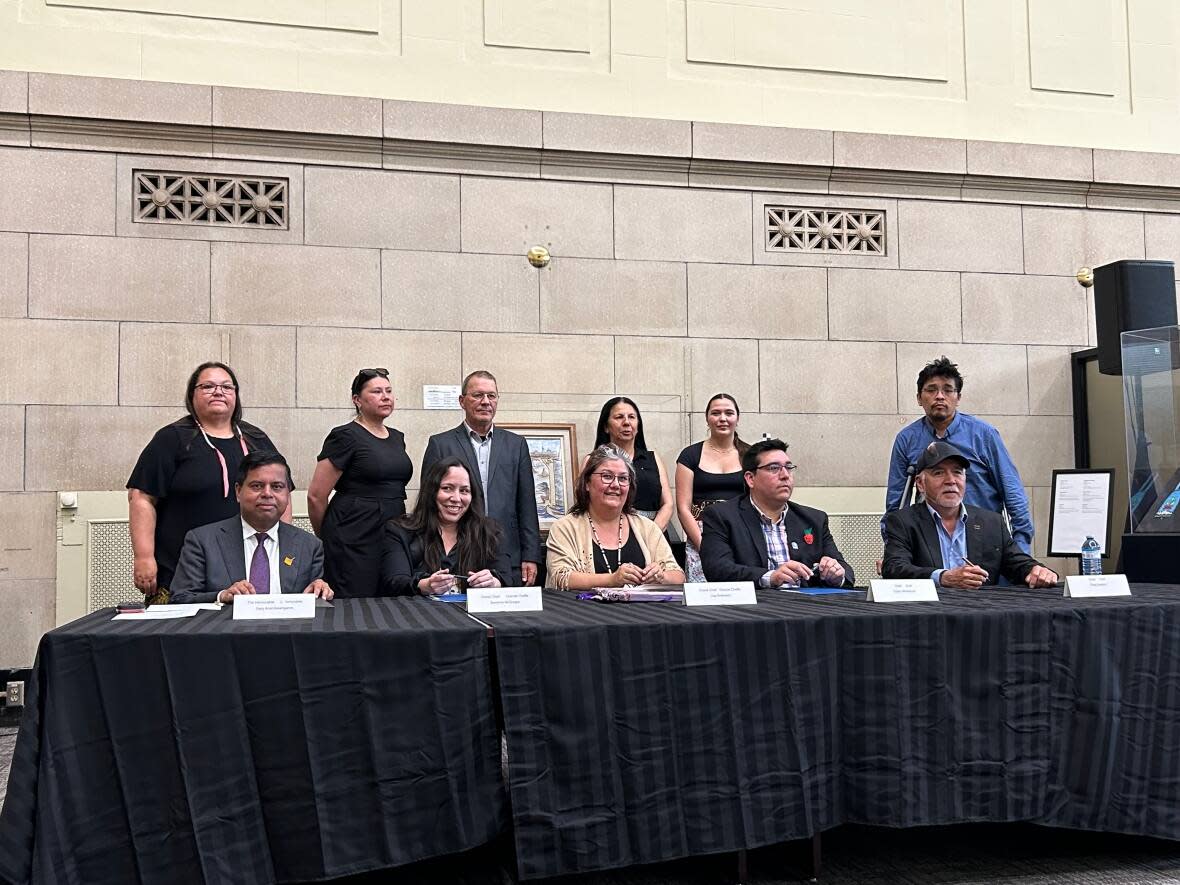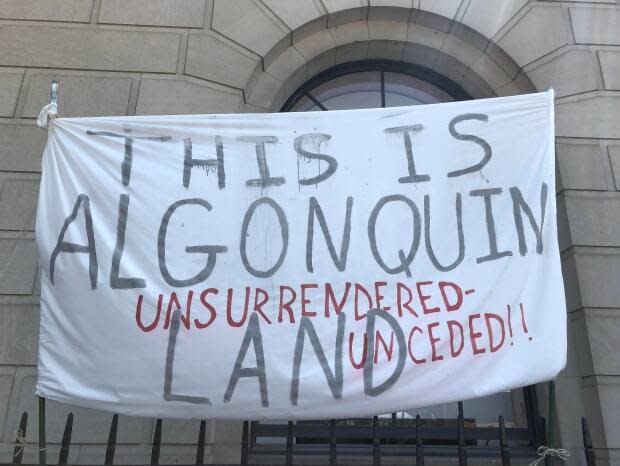After years of waiting, Anishinabe Algonquin Nation gets its own space in the Parliamentary Precinct

Members of the Anishinabe Algonquin Nation — whose unceded land is now the home of Canada's Parliament — are officially getting their own dedicated space across from Centre Block after years of advocacy and tensions.
A signing ceremony took place in Ottawa Wednesday between the leaders of the Anishinabe Algonquin Nation — a collection of First Nations in western Quebec and Ontario — and Crown-Indigenous Relations Minister Gary Anandasangaree to establish the nation's new permanent presence in the Parliamentary precinct.
"This agreement signifies Canada's commitment to us, the host nation, and it feels really good," said Grand Chief Savanna McGregor of the Algonquin Anishinabeg Nation Tribal Council.
The deal marks a turning point in the federal government's relationship with the Anishinabe Algonquin Nation, which has long fought for recognition.
Anandasangaree said the agreement binds the government and any future governments to transferring the land to the Algonquin.
"This is a monumental moment for both of our nations," he said.
"This is Canada giving back and returning to the rightful owners, the Anishinabe Algonquin people, their lands."

The site of the new Algonquin building is just a parking lot right now. But over the next few years, it will be transformed into a place to celebrate Algonquin culture.
It's located beside the Indigenous Peoples Space at 100 Wellington Street, the former home of the U.S. embassy.
Agreement comes 5 years after hunger strike
In 2017, Prime Minister Justin Trudeau announced the embassy building would become the first national space dedicated to Inuit, Métis and First Nations in the Parliamentary Precinct, but did not include the host nation.
The Algonquin staged a two week protest in 2019 against an official opening because they were not consulted.
The federal government then committed to creating a permanent space for the Algonquin after then-Grand Chief of the Algonquin Anishinabeg Nation Tribal Council Verna Polson held a 41 hour hunger and hydration strike during the demonstration outside 100 Wellington Street.
Polson demanded that the Algonquin be made a full fourth partner in the new Indigenous Peoples Space, which was gifted to three national Indigenous organizations — the Métis National Council, the Inuit Tapirit Kanatami and Assembly of First Nations — as an Indigenous embassy and cultural centre.
She joined Anishinabe Algonquin Nation leaders for the signing ceremony.
"It's about time," Polson said. "I would never change what I did. Would I do it again? Absolutely, in a heartbeat."

The 2024 federal budget offers $4.2 million over two years to support the work of the Algonquin nation and national Indigenous organizations on redeveloping 119 Sparks Street and 100 Wellington Street.
The Anishinabe Algonquin Nation will hold consultations with its membership to plan the building over the next few years. The project is expected to be completed within the next decade.
"This is actually a small gesture to some," Polson said.
"But to our nation, to me, it's huge because now Canada knows they're on unceded Algonquin Anishinabeg Nation territory."


